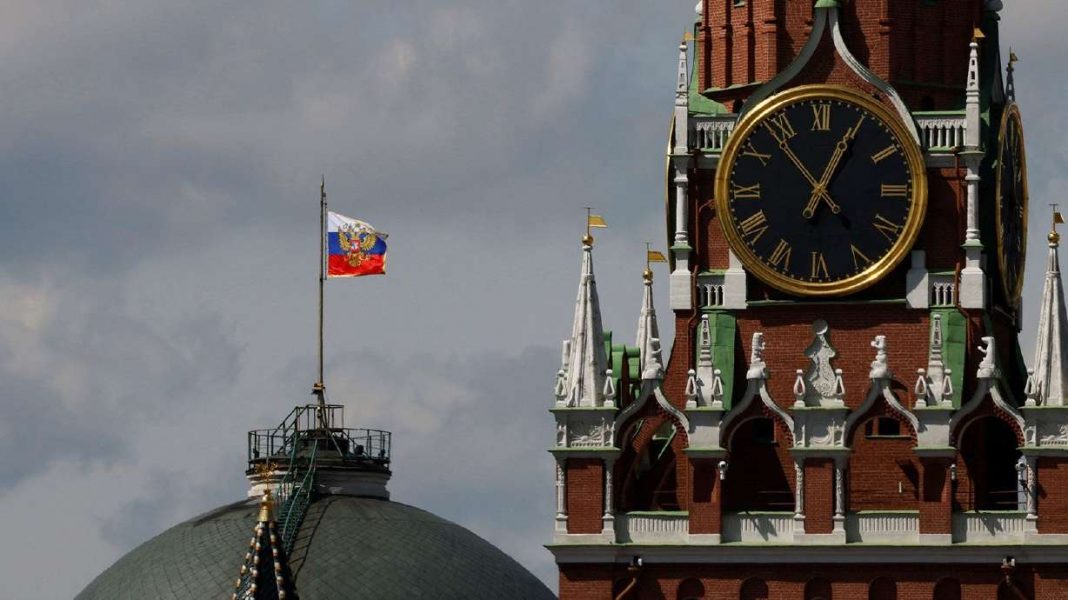MOSCOW — In a move that could potentially disrupt global communication and internet services, Russia is reportedly developing a nuclear space weapon. This weapon, upon detonation, would generate a massive energy wave capable of destroying satellites, according to three sources privy to the intelligence.
These sources have provided CNN with a more comprehensive insight into Russia’s project and the potential threat it poses, than what has been previously disclosed by the U.S. government.
On Wednesday, Republican Rep. Mike Turner of Ohio, the chairman of the House Intelligence Committee, sparked a flurry of concern in Washington when he announced that his committee had information about a “serious national security threat.” By Friday, President Joe Biden confirmed that Turner was referring to a new Russian nuclear anti-satellite capability. However, officials have remained tight-lipped about the details, citing the highly classified nature of the intelligence.
While the weapon is still under development and not yet in orbit, Biden administration officials have stressed its potential to cross a dangerous threshold in the history of nuclear weapons. If deployed, it could cause severe disruptions to daily life in unpredictable ways.
The weapon, known among military space experts as a nuclear electromagnetic pulse, would generate a pulse of electromagnetic energy and a surge of highly charged particles that would disrupt other satellites orbiting Earth.
On Friday, Biden assured the public that there is “no nuclear threat to the people of America or anywhere else in the world with what Russia is doing at the moment.”
‘Potential to render large portions of specific orbits unusable’
“Anything that they’re doing and/or they will do relates to satellites and space and damaging those satellites, potentially,” he added.
The Defense Department and the intelligence community have been monitoring Russian efforts to develop a range of anti-satellite weapons, including an electromagnetic pulse, for years.
Recent intelligence reports have specifically highlighted Russia’s efforts to develop nuclear-powered anti-satellite capabilities, according to a defense official.
However, Russia has recently made strides in its efforts to develop a nuclear electromagnetic pulse — a related but far more concerning technology.
“Our general knowledge of Russian pursuit of this kind of capability goes back many, many months, if not a few years,” National Security Council spokesman John Kirby said Thursday. “But only in recent weeks now has the intelligence community been able to assess with a higher sense of confidence exactly how Russia continues to pursue it.”
It would be a violation of the Outer Space Treaty to which more than 130 countries have signed up to, including Russia.
–John Kirby, National Security Council spokesman
The intelligence community, Biden said, had “found out there was a capacity to launch a system into space that could theoretically do something that was damaging” but that it “hadn’t happened yet.”
“It’s not a new concept and, as a concept, dates back to the late Cold War,” said one U.S. official. However, they added, “the big fear with any eventual (electromagnetic pulse) device in orbit (is) it might render large portions of particular orbits unusable” by creating a minefield of disabled satellites that ”would then prove dangerous to any new satellites we might try to put up to replace or repair the existing satellites.”
The Office of the Director of National Intelligence, the Defense Department, and the National Security Council all declined to comment.
It remains unclear whether the device, as designed, could impact GPS and nuclear command and control satellites, which operate in a higher orbit than the vast constellation of commercial and government satellites in low-Earth orbit. These larger satellites are designed to withstand a nuclear blast, but a former top space official at the Pentagon told CNN that “they could be vulnerable” depending on their proximity to the electromagnetic pulse, their age, and the size of the blast.
‘A weapon of last resort’
Experts suggest that this kind of weapon could potentially wipe out mega-constellations of small satellites, like SpaceX’s Starlink, which has been successfully used by Ukraine in its ongoing war with Russia.
This would likely be “a last-ditch weapon” for Russia, the U.S. official and other sources said — because it would cause equal damage to any Russian satellites in the vicinity.
The state of the technology remains uncertain. Russia has had several public failures with its nuclear technology in recent years. In 2019, seven Russians were killed in a nuclear accident while Moscow was attempting to recover a nuclear-powered cruise missile that had crashed into the White Sea during a failed test.
However, a recent intelligence assessment on Russian progress so alarmed some lawmakers on Capitol Hill that Turner invited all members of the House to be briefed on the matter.
Shortly after, he issued a vague public statement that brought the issue into the public eye.
Several sources familiar with the matter said that the exposure of the intelligence was extremely damaging because the source was incredibly sensitive. According to those sources, the intelligence community is now scrambling to figure out how to preserve its access.
Biden administration officials argue that if Russia were to deploy a nuclear electromagnetic pulse, it would be the first-ever violation of the Outer Space Treaty of 1967, which prohibits the placement of weapons of mass destruction in outer space.
“It would be a violation of the Outer Space Treaty to which more than 130 countries have signed up to, including Russia,” Kirby said Thursday, without providing further details.
Russia has withdrawn from several arms control treaties in recent years, leaving the post-Cold War arms control architecture virtually dismantled.
rnrn




Agree, good punctuation and grammar: This is a concerning development that could have major implications for global security.
Agree, this poses a serious threat to international security.
Bad punctuation and grammar: disagree Russia not developing nuclear space weapon sources wrong.